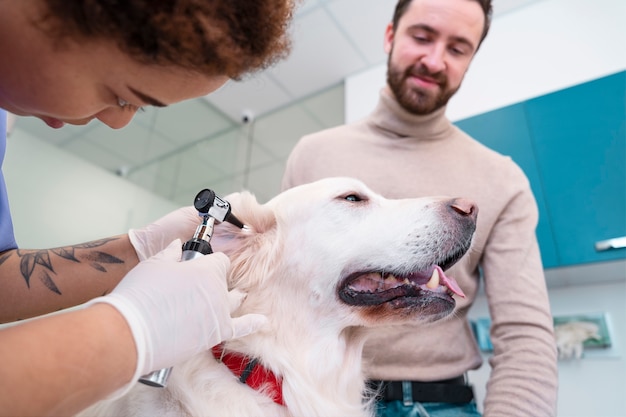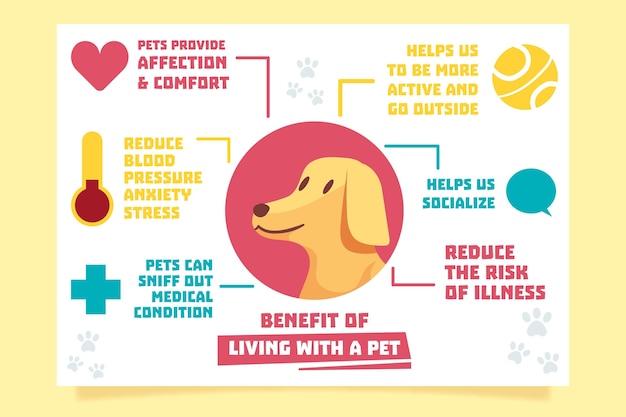Understanding Pet Oral Surgery: What Taylorville Owners Should Know

Understanding Pet Oral Surgery: What Taylorville Owners Should Know
If you have ever worried about your dog, cat, or even your small mammals experiencing mouth pain or trouble eating, you are not alone. Dental problems are common in pets and can impact everything from their appetite to their overall well-being. At Countryside Veterinary Services, located at 201 South Water Street, Taylorville, IL 62568, our veterinary professionals understand how overwhelming it can be to consider procedures like pet oral surgery. Whether your pet is struggling with a broken tooth, persistent bad breath, or signs of oral discomfort, knowing what to expect can bring you peace of mind and help you take the right steps for your animal’s health.
In this blog, we’ll explore why pet oral surgery may be necessary, how to recognize the signs your pet needs dental care, what to expect during the process, and how our veterinary team supports Taylorville and surrounding communities with comprehensive dental surgery for pets. You will also discover practical home care tips and learn when it’s time to reach out for professional help. If you are searching for a "dental vet near me" or looking for quality pet oral surgery in Taylorville, you will find answers and guidance here. For more details about our surgical dental services, you can visit our dedicated page on pet oral surgery for dogs, cats, and pocket pets.
Spotting Dental Problems: Signs Your Pet Might Need Oral Surgery
Many pet owners want to know when regular dental cleaning is no longer enough and when it might be time to consider pet oral surgery. The signs are not always obvious, but early recognition can make a significant difference in your pet’s comfort and recovery. Warning signs that your pet may need dental surgery include persistent bad breath that does not improve with routine cleaning, difficulty eating or chewing, excessive drooling, pawing at the mouth, visible swelling around the jaw or face, and bleeding from the gums. Additionally, you might notice your pet losing interest in toys that require biting, dropping food, or showing sudden changes in attitude such as irritability or withdrawal.
These issues can affect not only dogs and cats but also pocket pets like rabbits and ferrets, who are equally prone to dental disease. In Taylorville, where pets often enjoy outdoor activities, injuries to the mouth from sticks, rocks, or rough play can also occur. It’s important to remember that even subtle changes in your pet’s behavior may indicate oral discomfort or infection.
Why Dental Disease Happens: Causes and Risk Factors
Understanding the causes behind dental issues helps pet owners make informed choices about prevention and care. Dental disease in pets commonly develops due to a buildup of plaque and tartar, which leads to inflammation and infection of the gums. Over time, untreated dental problems can result in loose or broken teeth, abscesses, and damage to the jawbone. Smaller breeds, older pets, and animals with crowded teeth are at increased risk, but any pet can develop dental problems if preventive care is lacking.
Certain conditions, such as oral tumors, fractured teeth from chewing on hard objects, or advanced periodontal disease, may require surgical intervention. For pocket pets, dental disease can progress rapidly due to the unique structure of their teeth, which grow continuously. Environmental factors, like a diet high in soft foods without adequate chewing opportunities, can also contribute.
In Taylorville and the surrounding areas, seasonal changes can sometimes influence the types of dental injuries we see, especially as pets spend more time outdoors during warmer months. Recognizing these patterns helps our veterinary team provide proactive care and advice tailored to the needs of your community.
What to Expect: Treatment Options and the Pet Oral Surgery Process
When your pet needs more than a routine cleaning, pet oral surgery in Taylorville becomes a vital part of restoring their health and comfort. At Countryside Veterinary Services, dental surgery for pets begins with a thorough examination, including dental X-rays to pinpoint the problem areas. Our veterinarians may recommend surgical procedures such as tooth extractions, removal of oral masses, or repair of traumatic injuries, always with your pet’s safety and comfort as the top priority.
The treatment process typically involves pre-anesthetic blood work to ensure your pet is a good candidate for anesthesia. During surgery, your pet is closely monitored by our veterinary team, who utilize advanced equipment and techniques to minimize discomfort and speed recovery. Pain management and antibiotics are provided as needed, and we guide you through each step of the process.
For pets with conditions like severe periodontal disease, fractured teeth, or oral tumors, surgery may be the only way to relieve pain, prevent infection from spreading, and restore oral function. Even pocket pets benefit from specialized dental care; our team is experienced in safe, gentle techniques customized for these smaller patients.
If you are interested in learning more about our range of dental procedures, including extractions and oral surgery, we invite you to explore our information on pet tooth extraction services.
Recovery and Aftercare
After dental surgery for pets, recovery typically involves a short period of rest, a soft diet, and close observation for any signs of discomfort or complications. Our veterinary professionals provide detailed home care instructions and schedule follow-up visits to ensure your pet heals properly. Most pets recover quickly and experience a dramatic improvement in both their comfort and energy levels.
Home Care and Prevention: Keeping Your Pet’s Mouth Healthy
Preventing dental disease starts with regular care at home and routine veterinary checkups. Steps you can take include brushing your pet’s teeth with pet-safe toothpaste, providing dental chews or toys designed to support oral health, and scheduling annual dental exams with your veterinarian. Monitoring for changes in eating habits, breath odor, or oral appearance can help you catch issues before they become serious.
For pocket pets, offering appropriate foods and chewable materials is crucial for dental health. Our team is happy to advise you on the best preventive strategies for all types of pets. Remember, even with the best home care, some pets may still require professional cleanings or dental surgery due to genetics or age.
If you would like more information on routine dental cleanings for your pet, please see our comprehensive guide to pet dental cleaning services.
When Should You Call the Veterinarian? Knowing the Right Time for Professional Care
It’s not always easy to decide when to seek veterinary care for dental issues, but certain signs should never be ignored. These include persistent bad breath, visible swelling or bleeding, refusal to eat, sudden behavior changes, or any sign of pain around the mouth. If your pet has sustained trauma to the jaw or face, or if you notice loose or discolored teeth, prompt professional evaluation is essential.
Our veterinarians recommend scheduling an appointment at the first sign of dental trouble to prevent complications and ensure your pet’s comfort. In some cases, dental disease can lead to infections that affect other organs, making timely intervention critically important.
For pocket pets and exotics, dental problems can escalate quickly, so do not hesitate to contact us if you suspect an issue. We are committed to providing the highest standard of pet oral surgery in Taylorville and supporting your pet’s health at every stage of life.
Supporting Your Pet’s Health: Your Partner for Pet Oral Surgery in Taylorville
At Countryside Veterinary Services, we know how important your pets are to your family. Our compassionate veterinary professionals are dedicated to providing safe, effective dental surgery for pets in Taylorville and surrounding communities. From the initial examination to surgery and follow-up care, we guide you through every step, helping your pet return to their happy, healthy self.
If you notice signs of dental discomfort or are concerned about your pet’s oral health, we encourage you to schedule an appointment with our team. We are here to answer your questions and provide personalized care plans that fit your pet’s needs. For those searching for a "vet near me" or looking for the best dental vet near me, you can trust our experienced veterinarians at 201 South Water Street, Taylorville, IL 62568.
To request a consultation or learn more about our pet oral surgery services, call us at (770) 788-7387. Our team is ready to help you and your pets enjoy lifelong health and comfort.
This blog is for informational purposes only and should not replace professional veterinary advice. Always consult your veterinarian for specific questions about your pet’s health or before making any medical decisions. For more resources on veterinary dental care, visit the American Veterinary Dental College at avdc.org.




















